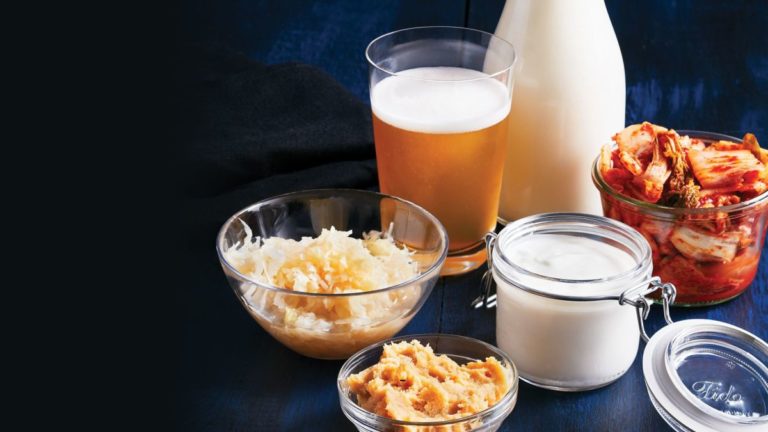It’s befitting to write this month’s newsletter on the topic of constipation given the 10 soiled diapers I changed with my newborn every precious day. And though this simple act is the most natural part of being human, sometimes it just doesn’t feel natural. Sometimes moving your bowels is a struggle.
Constipation, defined as fewer than 3 bowel movements per week and at least 25% of the time experience straining and hard stool, is prevalent in 15% of the population under 65 and increases as you age. It’s a common dread that signals important clues about the state of our diet, lifestyle, stress, what medications we take, and even how we we were born or fed as a newborn.
I like solving the mystery of constipation in my patients because we get to focus on many of the healthy lifestyle habits which ultimately lead to cure.
If you are experiencing frequent bouts of constipation in your life, then you should ask yourself these 3 questions:
- How much water have I had today?
- Do I eat 8 servings of fruits and vegetables every day?
- Do I sit in a chair for 8 hours of more most days?
If your answers are affirmative, and you meet the criteria of chronic constipation, water intake of at least 4-6 large glasses of water per day, preferably consumed in the first half of the day should be a routine habit. Prunes, plums, apples, celery, peppers and other types of roughage found in a plant-based diet are sure savers for a healthy gut flora. And don’t forget your seeds, chia, hemp, mugworts, flax to emulsify the contents of the bowel to a mushy consistency and ease of passage. Your stool should look like frozen yogurt!
Activity is crucial in signaling healthy gut motility. Inactivity on a flight or long car ride commonly leads to constipation. One of the simplest ways we get hospitalized patients to start having BM’s after surgery or illness is an order to “Ambulate three times daily.”
Another common cause of constipation is drugs, such as opioid-based pain relievers, iron supplements, and antihypertensives to name a few. I encourage everyone to review their prescriptions with the pharmacist if they’re prone to this condition. Click here for comprehensive list of drugs associated with constipation.
A thorough survey of above generally guides us to the root of the problem, and a straightforward strategy of lifestyle modification devised during our initial exam restores the gut to its healthy state, whereby constipation becomes a thing of the past. A follow up schedule in 6 weeks will ensure safekeeping of good habits and targeting areas of concern.
Intestinal Microflora
Many of my long standing patients are aware that during our visits I focus a great deal on how to cultivate a beneficial microbiota balance. Constipation has been associated with lower bacteriodetes to firmicutes ratio, a marker of heavy meat-based diets. In his best-selling book, Brain Maker, Dr. Perlmutter investigates this intricate balance of microbiota and eloquently describes how its disarray leads to many common conditions such as obesity, dementia, and irritable bowel disease. Billions of species exist in our gut biofilm and majority of them thrive on fiber, an essential nutrient which has dwindled in the average American diet beginning in the 1950’s. In order to sustain the diversity of gut microbes and proliferate the better ones such as bacteriodetes, a diet rich in grains, fiber, vegetables, beans and fruits is essential.
Fermented foods are foods that are basically transformed food to contain billions of “probiotics”, therefore, should also make up a substantial part of your diet for a proper microflora diversity. Be sure to eat a variety of fermented foods such as yogurt, kefir, kambucha tea, miso, tofu, beer, cheese, and pickled foods at least once a day. I am also a believer of prebiotics, such as herbs and radishes before or during meals to help the digestive process along. Even bread made with yeast (a form of probiotic) like sourdough bread is a staple addition to many diets around the world, so you shouldn’t have to skip the bread!
If the bowels are still unhappy despite all above measures, we resort to supplemental fiber, magnesium, and 100 billion broad spectrum CFU probiotics in our initial attempt to resolve the problem. We prescribe medications such as docusate sodium, dulcolax, senna, or Miralax for moderate cases of constipation especially if the root cause is unavoidable. By this time, a diary of bowel movements, water intake, activity and medication use will be the center of our attention. Fancier drugs have entered the market in recent decades, for example Linzess is FDA-approved for idiopathic constipation or IBS-associated constipation. Another favorite are drugs, Relistor and Movantik which work to unblock only the gut opioid receptors that have been blocked by opioid drugs.
Summary
Chronic constipation is perhaps the most common dread many experience at least once in their lifetime. The root of the problem usually lies beneath the surface with inadequate water intake and inactivity being the main culprits. A healthy gut flora, essential to restoring normal movements can be achieved by a diet rich in fiber derived from plant-based foods, fermented foods and seeds. Finally, medications are a main cause of chronic constipation and should be carefully reviewed by healthcare providers. A stool chart and diary of movements are reserved for complicated cases. Stool softeners and over the counter remedies typically lead to resolution of symptoms.
In good GUT health,
Dr. Yazdani
Click here to view all the internal medicine services available at Seaside Medical!

